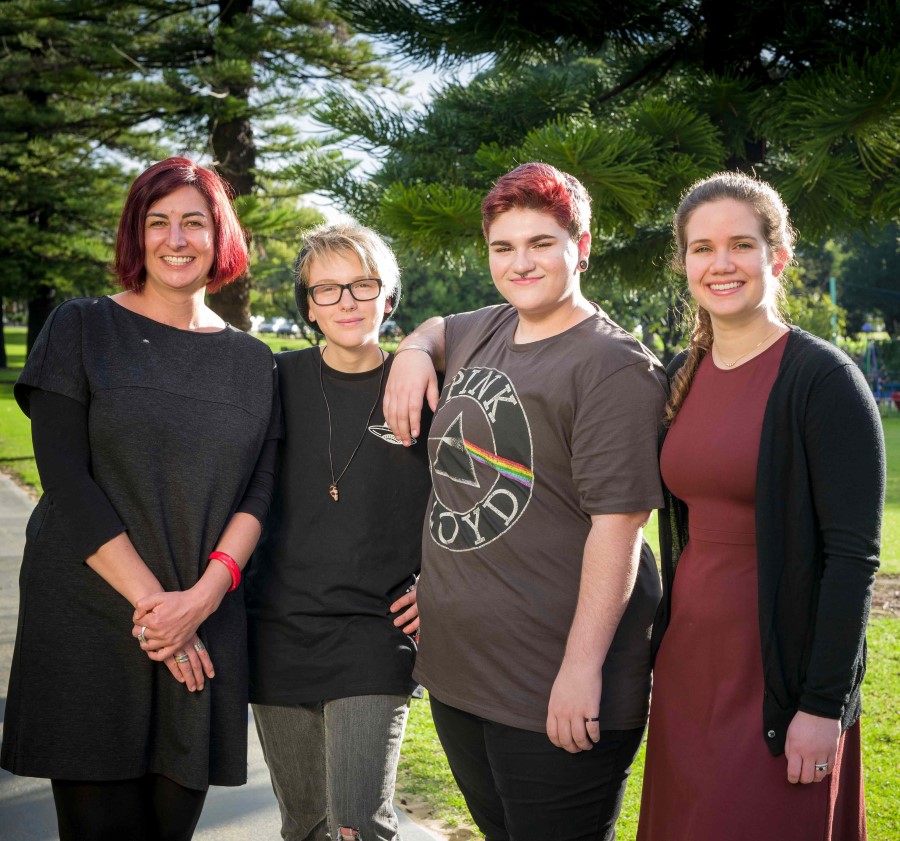Search
Research
Potential immunological effects of gender-affirming hormone therapy in transgender people – an unexplored area of researchThere are well-described sex-based differences in how the immune system operates. In particular, cisgender (cis) females have a more easily activated immune system; associated with an increased prevalence of autoimmune diseases and adverse events following vaccinations. Conversely, cis males have a higher threshold for immune activation, and are more prone to certain infectious diseases, such as coronavirus disease (COVID-19).
Research
“Shame, Doubt and Sadness”: A Qualitative Investigation of the Experience of Self-Stigma in Adolescents with Diverse Sexual OrientationsMany adolescents with diverse sexual orientations lead happy and fulfilled lives. However, evidence consistently suggests elevated rates of mental health difficulties in this population relative to heterosexual peers, and internalization of stigma (i.e., self-stigma) is implicated in these elevated rates. This study aimed to understand and describe the lived experience of self-stigma with respect to participants’ sexual orientations.

News & Events
Trans Pathways provides evidence base to improve mental health of Trans YouthA ground-breaking survey by The Kids researchers has become the new reference point to guide policy change and educate health providers to better support trans and gender-diverse youth in Australia.
Research
Options and realities for trans and gender diverse young people receiving care in Australia's mental health system: findings from Trans PathwaysTrans and gender diverse young people experience mental health difficulties self-harm and suicidality at markedly higher rates than the general population, yet they often feel isolated from mental health services. There is little qualitative research on the experiences of trans and gender diverse young people accessing mental health support in Australia.
Research
Predicting NSSI among trans young people: the role of transphobic experiences, body image, and gender dysphoriaNon-suicidal self-injury (NSSI) is particularly common among trans young people. NSSI is most commonly used as an emotion regulation strategy, which may explain the high prevalence of the behavior among trans young people, who often experience unique stressors. In the current study we test an application of the Pantheoretical Framework of Dehumanization, in which transphobic experiences, body surveillance, body dissatisfaction, and gender dysphoria are all theorized to predict NSSI.
Research
An Exploration of LGBTQA+ Young People’s Coping Strategies When Navigating Suicidal Thoughts and BehaviorsLGBTQA+ young people experience suicidal thoughts and behaviors at a much greater rate than their heterosexual and cisgender peers. This study explored firsthand accounts of the coping strategies employed by LGBTQA+ young people when experiencing suicidal thoughts and behaviors.
Research
A critical discussion of pediatric gender measures to clarify the utility and purpose of “measuring” genderPediatric gender clinics and researchers commonly use scales to measure different dimensions of gender (e.g. identity, dysphoria, satisfaction). There has been little investigation into the relevance and consumer acceptability of these scales within contemporary understandings and experiences of gender.
Research
Barriers and facilitators to mental health care access and engagement for LGBTQA+ people with psychosis: A scoping reviewLGBTQA+ individuals are at increased risk of experiencing psychosis and face barriers in accessing appropriate and timely mental health support. This scoping review maps the existing literature to identify barriers and facilitators to access and engagement to care for LGBTQA+ people across the psychosis spectrum.
Research
Prevalence, distribution, and inequitable co-occurrence of mental ill-health and substance use among gender and sexuality diverse young people in Australia: epidemiological findings from a population-based cohort studyTo estimate the prevalence, distribution, and co-occurrence of mental ill-health and substance use among gender and sexuality diverse young people relative to their cisgender and heterosexual peers in Australia using population-level, nationally representative data.
Research
Mental ill-health and substance use among sexuality diverse adolescents: The critical role of school climate and teacher self-efficacyMental ill-health, substance use and their co-occurrence among sexuality diverse young people during earlier adolescence is relatively understudied. The preventive utility of positive school climate for sexuality diverse adolescents' mental health is also unclear, as well as the role of teachers in conferring this benefit.
